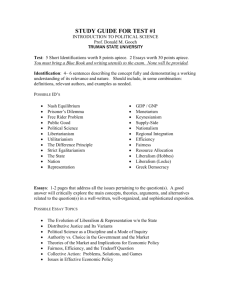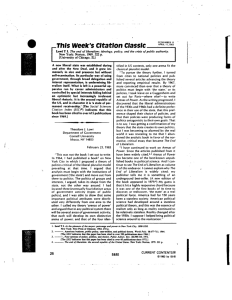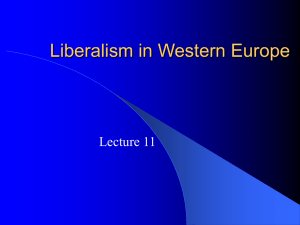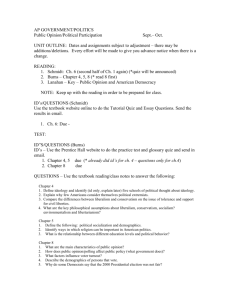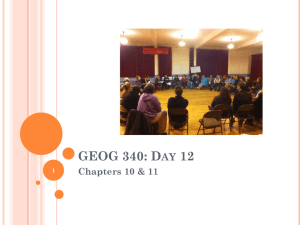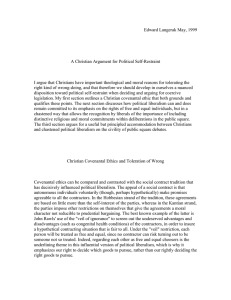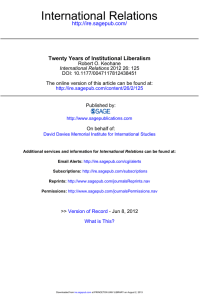A Liberalism of Heart and Spine
advertisement
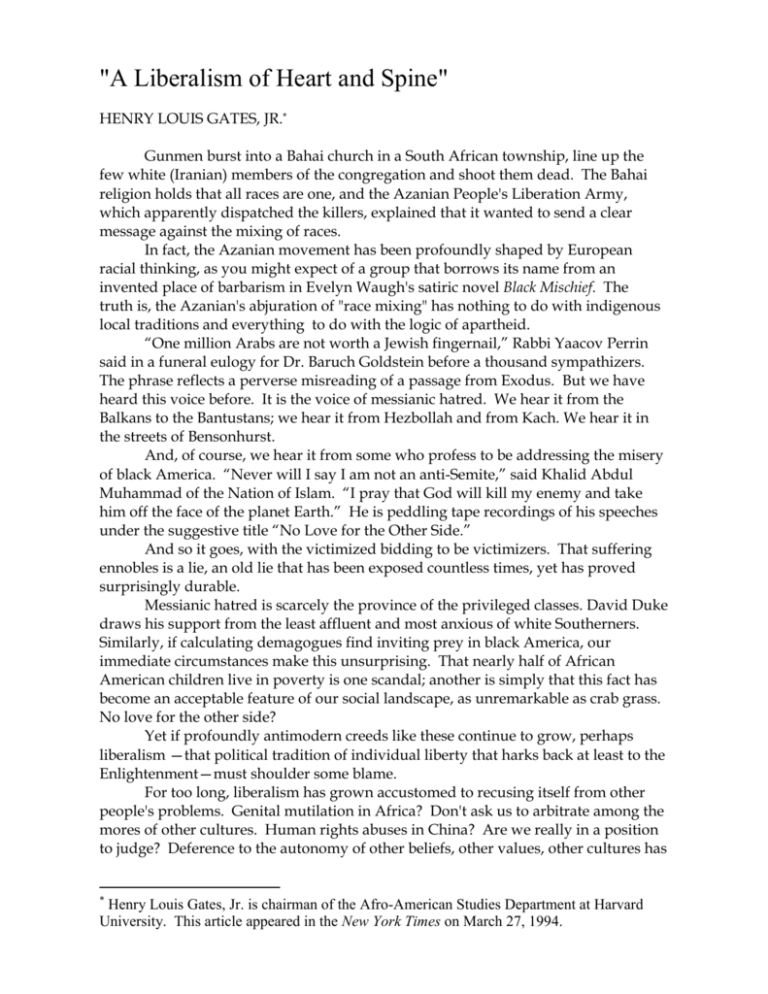
"A Liberalism of Heart and Spine" HENRY LOUIS GATES, JR.* Gunmen burst into a Bahai church in a South African township, line up the few white (Iranian) members of the congregation and shoot them dead. The Bahai religion holds that all races are one, and the Azanian People's Liberation Army, which apparently dispatched the killers, explained that it wanted to send a clear message against the mixing of races. In fact, the Azanian movement has been profoundly shaped by European racial thinking, as you might expect of a group that borrows its name from an invented place of barbarism in Evelyn Waugh's satiric novel Black Mischief. The truth is, the Azanian's abjuration of "race mixing" has nothing to do with indigenous local traditions and everything to do with the logic of apartheid. “One million Arabs are not worth a Jewish fingernail,” Rabbi Yaacov Perrin said in a funeral eulogy for Dr. Baruch Goldstein before a thousand sympathizers. The phrase reflects a perverse misreading of a passage from Exodus. But we have heard this voice before. It is the voice of messianic hatred. We hear it from the Balkans to the Bantustans; we hear it from Hezbollah and from Kach. We hear it in the streets of Bensonhurst. And, of course, we hear it from some who profess to be addressing the misery of black America. “Never will I say I am not an anti-Semite,” said Khalid Abdul Muhammad of the Nation of Islam. “I pray that God will kill my enemy and take him off the face of the planet Earth.” He is peddling tape recordings of his speeches under the suggestive title “No Love for the Other Side.” And so it goes, with the victimized bidding to be victimizers. That suffering ennobles is a lie, an old lie that has been exposed countless times, yet has proved surprisingly durable. Messianic hatred is scarcely the province of the privileged classes. David Duke draws his support from the least affluent and most anxious of white Southerners. Similarly, if calculating demagogues find inviting prey in black America, our immediate circumstances make this unsurprising. That nearly half of African American children live in poverty is one scandal; another is simply that this fact has become an acceptable feature of our social landscape, as unremarkable as crab grass. No love for the other side? Yet if profoundly antimodern creeds like these continue to grow, perhaps liberalism —that political tradition of individual liberty that harks back at least to the Enlightenment—must shoulder some blame. For too long, liberalism has grown accustomed to recusing itself from other people's problems. Genital mutilation in Africa? Don't ask us to arbitrate among the mores of other cultures. Human rights abuses in China? Are we really in a position to judge? Deference to the autonomy of other beliefs, other values, other cultures has * Henry Louis Gates, Jr. is chairman of the Afro-American Studies Department at Harvard University. This article appeared in the New York Times on March 27, 1994. become an easy alibi for moral isolationism. When we need action, we get handwringing. When we need forthrightness, we get equivocation. What we have is a rhetoric of relativism. But let's call such “moral relativism” by its real name: moral indifference. And let’s admit how finite are our vaunted moral sympathies, here in the comfortable West. According to recent reports, perhaps 100,000 people have died in recent ethnic conflicts that have raged through tiny Burundi. Could any type of intervention have helped? Maybe not. But that isn't the point. The point is that nobody is asking. Not enough love for the other side. Meanwhile, the tragedy of Bosnia took on the look of the Kitty Genovese syndrome on a global scale. We need a liberalism that has confidence in its own insights, a liberalism possessed of clarity as well as compassion. To creeds that prate of sacred fingernails, as the rabbi did, of “no love for the other side,” of the sins of mixing ethnic or racial categories, we must juxtapose a muscular humanism. A humanism that is without arrogance and is unafraid to assert itself, its hard-won moral knowledge. One that neither shuns religious devotion nor mistakes itself for a religion. One that has courage as well as conviction. There is something of a paradox here. The most heinous of deeds have always been committed in the name of future generations, of an awaiting utopia. The nature of these evils could not be concealed if they were committed in the name of our own interests in the here and now, but utopianism wraps them in the garb of virtuous “sacrifice.” Accordingly, it is its stoutly anti-utopian aspect—its capacity for selfdoubt—that liberalism has claimed as a moral advantage. But the capacity to entertain uncertainty needn't entail Hamlet-like paralysis. It merely promotes a willingness to revise our beliefs in the light of experience, to extend respect to those we do not agree with. Is it, after all, unreasonable to be suspicious of Westerners who are exercised over female circumcision but whose eyes glaze over when the same women are merely facing starvation? The Azanian, the West Bank fanatic, the American demagogue march to a single drum. There has been much talk about the politics of identity—a politics that has a collective identity as its core. One is to assert oneself in the political arena as a woman, a homosexual, a Jew, a person of color. But while the conversation about it may seem recent, the phenomenon itself is age-old. The politics of identity starts with the assertion of a collective allegiance. It says: This is who we are, make room for us, accommodate our special needs, confer recognition upon what is distinctive about us. It about the priority of difference, and while it is not, by itself, undesirable, it is—by itself—dangerously inadequate. By contrast, what I'm calling humanism starts not with the possession of identity, but with the capacity to identity with. It asks what we have in common with others, while acknowledging the diversity among ourselves. It is about the promise of a shared humanity. In short, the challenge is to move from a politics of identity to a politics of identification. It was this conversion that Malcolm X underwent toward the end of his life. If Minister Farrakhan, a brilliant, charismatic man, undergoes a similar conversion, he will earn a place in the annals of our time. If not, he will just be another in a long line of racial demagogues, joining Father Coughlin, Gerald L. K. Smith, and the like. A politics of identification doesn’t enjoin us to ignore or devalue our collective identities. For it's only by exploring the multiplicity of human life in culture that we can come to terms with the commonalities that cement communitas. It is only by this route that we can move a little closer to what the poet Robert Hayden, himself a Bahai, conjured up when he urged us to “renew the vision of a human world where godliness / is possible and man / is neither god, nigger, honky, wop, nor kike / but man / permitted to be man.” We may be anti-utopian, but we have dreams, too.

